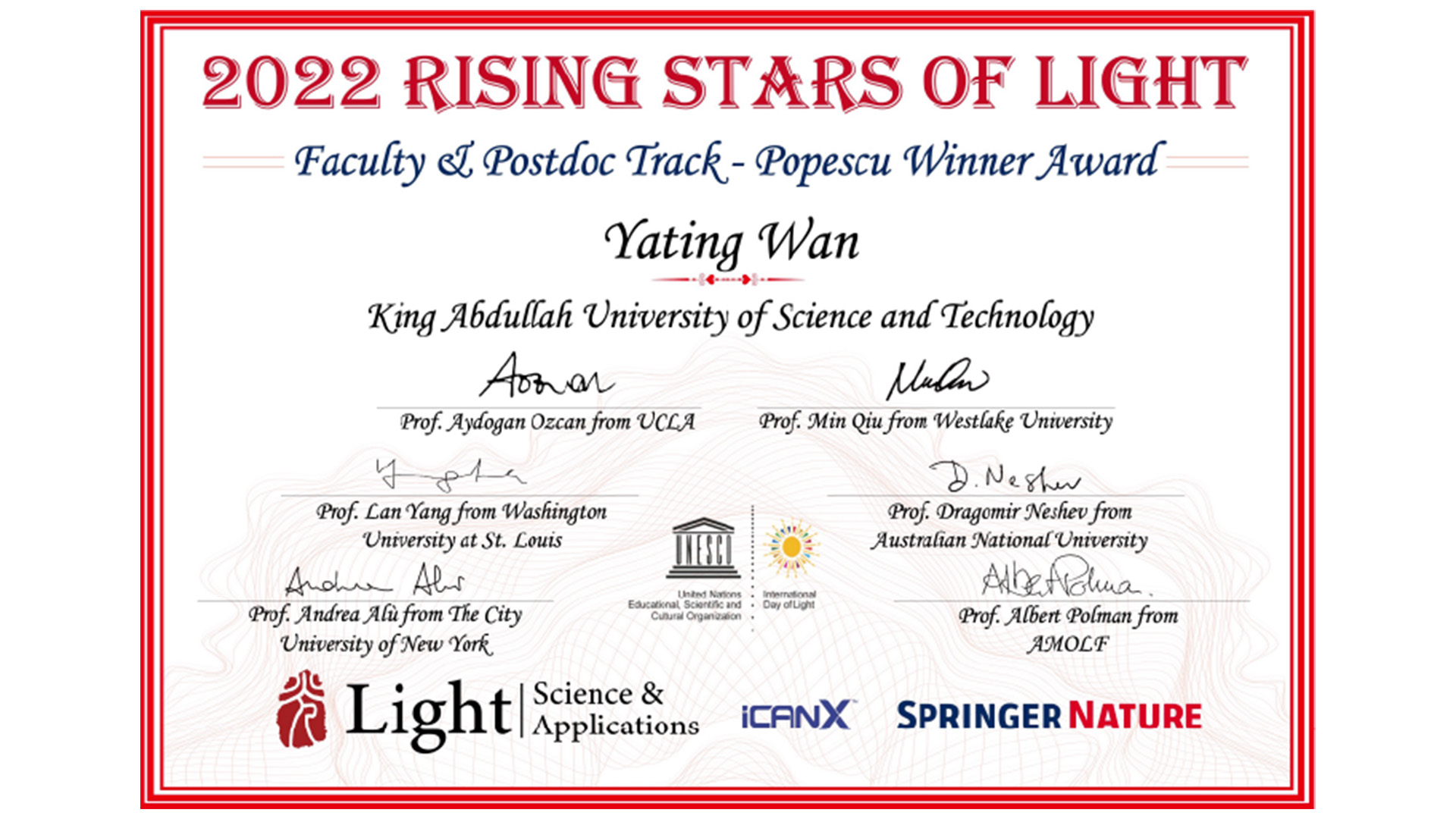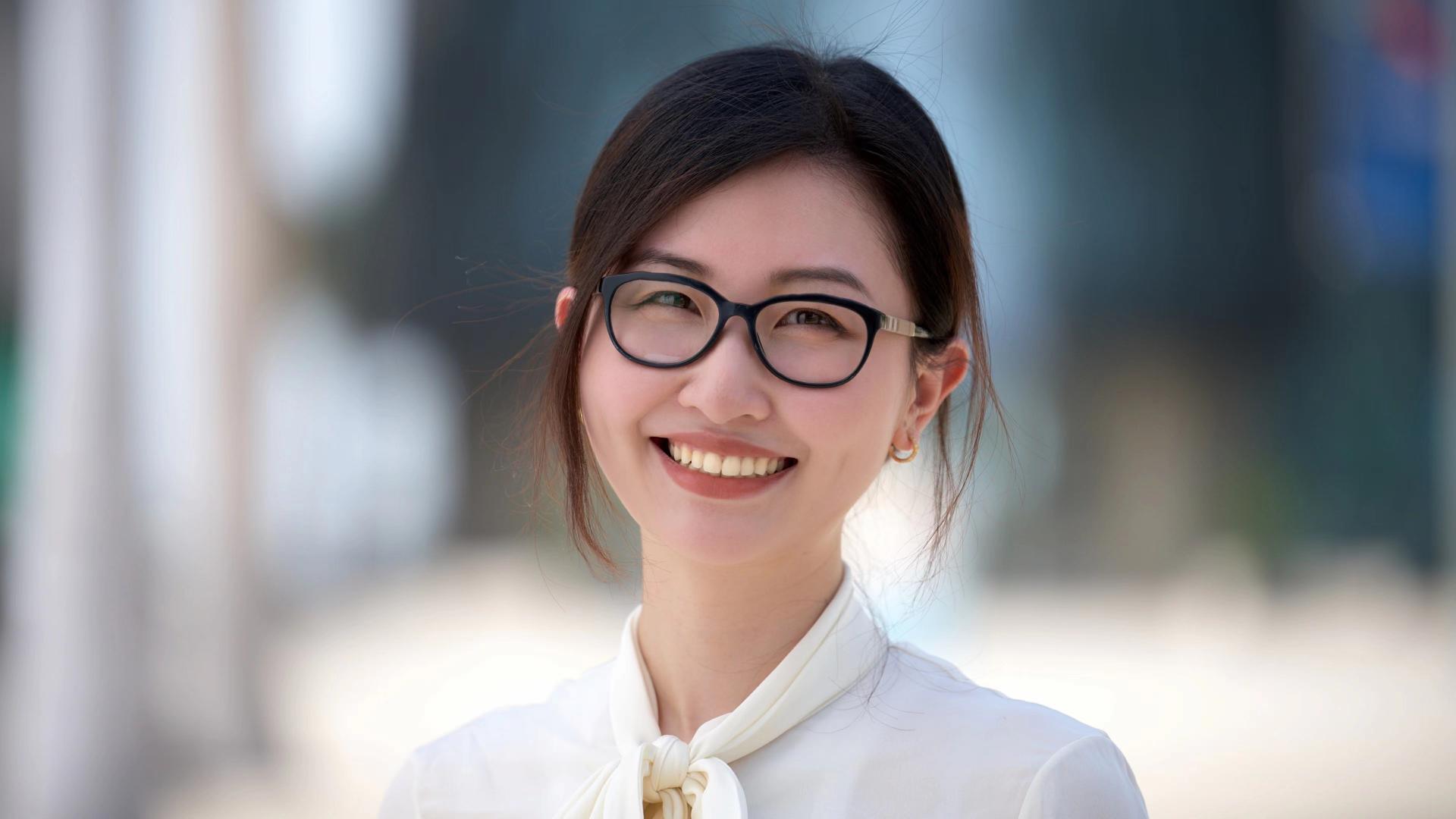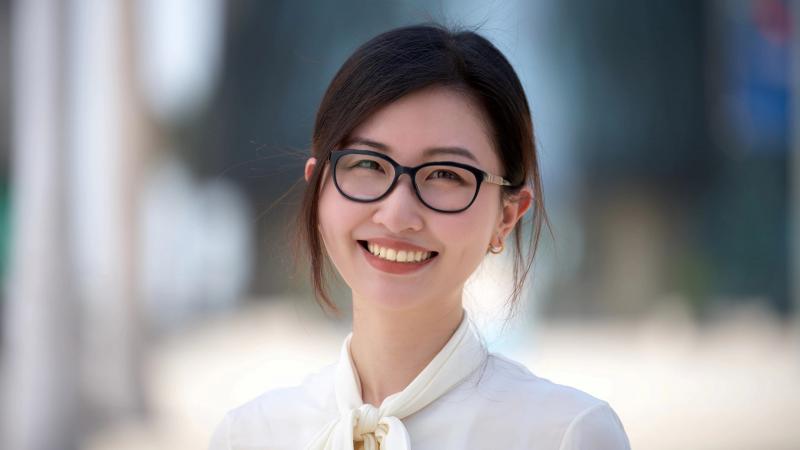By David Murphy
KAUST Assistant Professor of Electrical and Computer Engineering Yating Wan recently received the 2022 Rising Stars of Light Faculty & Postdoc Track - Popescu Winner Award from Light: Science & Applications (LSA). LSA is a Nature Academic, a peer-reviewed open-access scientific journal published by Nature Portfolio, which publishes breakthrough research from all aspects of optics and photonics, including basic, applied and engineering research and applications.
Established in 2017, the Rising Stars of Light event is a worldwide campaign that acknowledges the brightest young scientists in optics-related fields. Co-organized by iCANX—a global innovation & ecological center—this year’s event was held to honor the legacy of the late Professor Gabriel Popescu, the William L. Everitt Distinguished Professor at the University of Illinois at Urbana-Champaign, U.S.
On October 14 and 21, the 2022 Rising Stars of Light Final Campaign was live hosted on iCANX talks. After a thorough selection process consisting of two sessions and six hours online, committee members selected Professor Wan, Professor Lin Chang, Peking University, China, and Professor Chao Zuo, Nanjing University of Science and Technology, China, as winners of the Faculty & Postdoc Track.
“It’s encouraging for me to win the 2022 Rising Stars of Light Award, I would like to thank my current group in KAUST, my postdoc supervisor, Professor John Bowers and the UCSB group, my collaborators in Intel, HKUST, etc., for contributing so much to this work,” she noted.
“I would also like to thank the LSA committee for recognizing the significance of this work. Dense device integration with on-chip lasers will be critical for many envisioned future applications; we are making photonic integrated circuits the same way electronic-integrated circuits are made. Intel is leading the commercial end of it, and we are working to lead the research end of it.”

Leading the way in silicon photonics research
Wan joined KAUST in 2021 from the University of California, Santa Barbara (UCSB), where she was a postdoctoral research associate and member of Professor John Bowers’ optoelectronics group. She received her B.Sc. degree ('12) in optical science and engineering optics from Zhejiang University, China, and her Ph.D. degree ('17) from the Hong Kong University of Science and Technology, with the highest recognition: PHD Research Excellent Award.
Her early career impact has also led to her winning the prestigious Tingye Li Innovation.
Tingye Li Innovation Prize in 2021 for her paper titled "1.3 µm Regrown Quantum-Dot Distributed Feedback Lasers on (001) Si: A Pathway to Scale Towards 1 Tbit/s." Established in 2013, the award honors the pioneering research of Chinese American scientist Tingye Li.
In Wan’s view, photonics occupies the "sweet spot" between science and engineering. It is a science that allows her to engage in research that has unmeasurable real-world application potential and can influence millions of people’s lives while providing a level of engagement that is simply unavailable in pure engineering.
Due to recent breakthroughs, silicon photonics (SiPh) has become an attractive platform for photonic integration from both a cost and performance standpoint. As an energy-efficient, scalable, and eco-friendly solution, integrated SiPh has sparked a significant ramp-up in investment in academia and industry. Wan and her colleagues in the KAUST Integrated Photonics Lab (IPL) work on SiPh with a particular emphasis on integrating of on-chip light sources to provide connectivity for short-range communications.
“We tackle this from device-level and system-wide points of view,” Wan explained. “In the former, the different routes taken in integrating on-chip lasers are explored from various material systems to the chosen integration methodologies.
“Then, the focus is shifted toward system-wide applications that show great prospects in incorporating photonic integrated circuits with on-chip lasers and active devices. Namely, optical communications, interconnected sensors for chemical and biological analysis, integrated quantum technologies and optical computing.”
By leveraging the myriad inherent attractive features of integrated SiPh, the IPL research group is seeking novel ways to develop photonic integrated circuits with on-chip lasers.
“The optoelectronic chip and semiconductors are the basis of vital fields such as artificial intelligence, energy, sensors, information technology, and the foundation of the third and fourth industrial revolutions. And I firmly believe the localization of the optoelectronic chip and semiconductor industry will contribute to achieving the goals set out by the Vision 2030 program,” Wan concluded.

